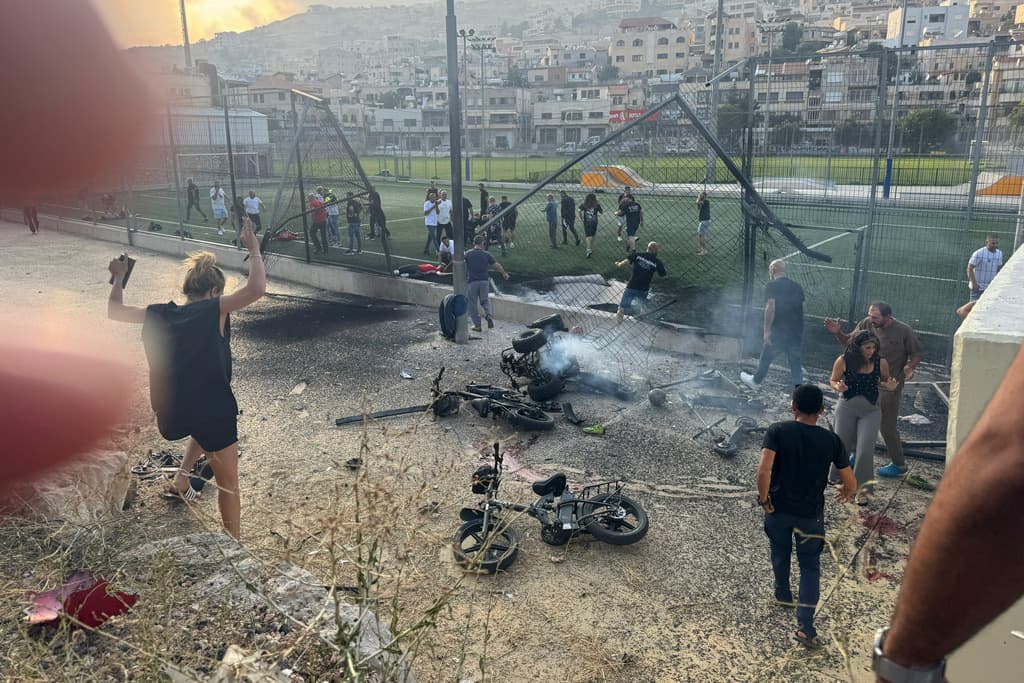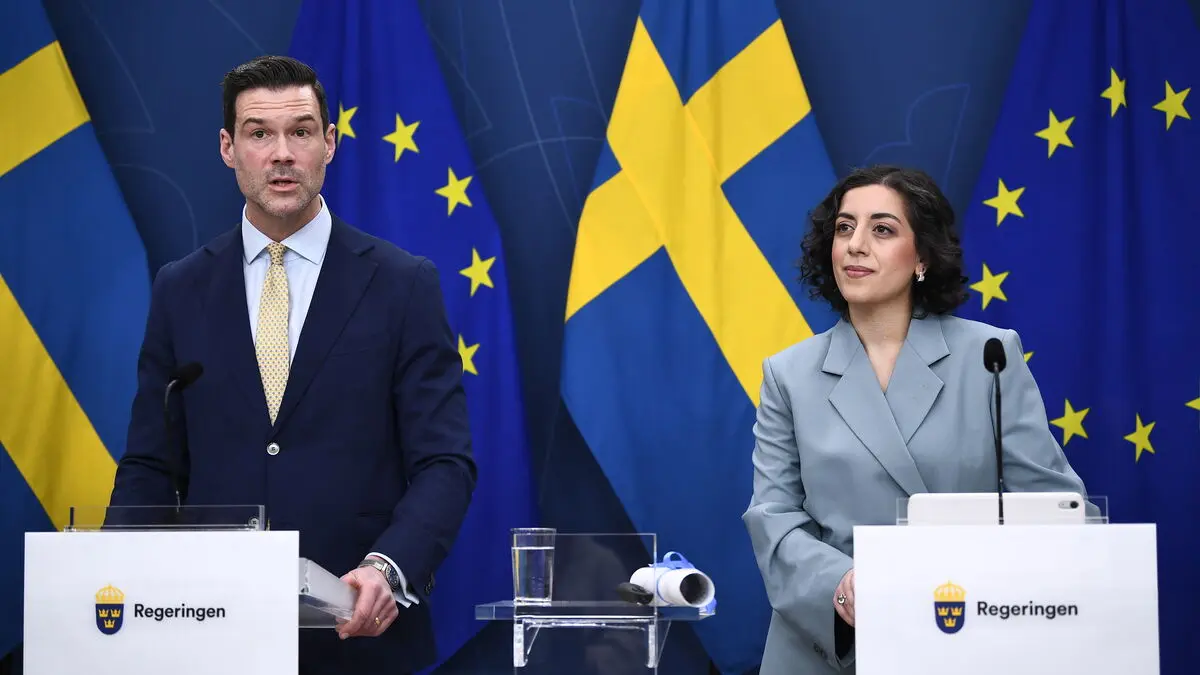Israel has attacked targets "deep inside Lebanese territory" in response to the attack on the Golan Heights, where at least twelve children and young people were killed.
Israeli ministers are now raising their tone against the northern neighbor, and concern about escalation in the region is great.
Israel's Foreign Ministry says that the Islamist Hezbollah has "crossed all boundaries" with the "massacre" in the village of Majdal Shams on the Golan Heights on Saturday evening, writes AFP.
Israel's Defense Minister Yoav Gallant has given orders to prepare for "any possible development" and to be "in full readiness" during a meeting, writes the Israeli newspaper Haaretz.
The country's Education Minister Yoav Kisch writes on the platform X that he expects the government to respond "with full force" even if it means full-scale war.
Hezbollah denies
Israel's military claims that it was one of Hezbollah's rockets that hit a football field in the village of Majdal Shams. The village is located in the northern part of the Golan Heights, an area that Israel has captured from Syria and later annexed.
Hezbollah, however, continues to firmly deny being behind the attack, but has stated that it has attacked Israeli military targets in response to Israeli attacks the day before.
Several analysts speculate that it may have been a misdirected Hezbollah rocket that hit Majdal Shams. It cannot be entirely ruled out that it was misdirected Israeli air defense fire, says Riad Kahwaji, military analyst at the Dubai-based institute Inegma to the news agency AFP.
US Secretary of State Antony Blinken says that everything points to Hezbollah being guilty.
From several quarters, including the EU, there are calls for an independent international investigation into the incident.
Several young people killed
The rocket attack on the village of Majdal Shams on the Golan Heights killed at least twelve people, all between ten and twenty years old, according to Israeli media. At least twenty people are reported to have been injured.
Majdal Shams still has a predominantly Arab population, Druze.
The UN Secretary-General condemns the attack and urges all parties to "maximum restraint".
At the same time, Iran is warning Israel that new military "adventures" in Lebanon could lead to "unforeseen consequences".
Israel and the Iran-backed militia group Hezbollah have almost daily exchanged fire across the border since the Gaza War began after the terrorist-stamped Hamas attack on Israel in October last year.
An Islamist movement, created in the early 1980s as a reaction to a conflict situation similar to today's. The Palestinian Liberation Organization (PLO) had used southern Lebanon as a base for attacks on northern Israel, which led Israel to invade in 1982.
Inspired by the Islamic revolution in Iran a few years earlier, Lebanese Islamists formed Hezbollah ("God's party"), a name chosen by the Iranian leader Khomeini.
An explicit main goal has been to expel all colonialists. In practice, this has meant that much of the armed struggle has been directed against Israel – seen as the representative of the Western world in the Middle East.
In Lebanon, Hezbollah functions as "a state within a state", with a military power at least as great as the country's army and a strong role in politics and social life.
The Golan Heights, which lies on Israel's border with Syria, has a strategically important military location. During the Six-Day War in 1967, Israel took large parts of the area from Syria, and annexed 1,200 square kilometers in 1981.
Only the USA has recognized Israel's sovereignty over the area, a decision made in 2019 by then-President Donald Trump.
Tens of thousands of Syrians and Palestinians fled or were driven out of the Golan Heights following Israel's conquest. But around 23,000 Arabs, mostly Druze, still live in the area. Since Israel's conquest, approximately the same number of Israeli settlers have moved to the area. The settlements are illegal according to international law.






